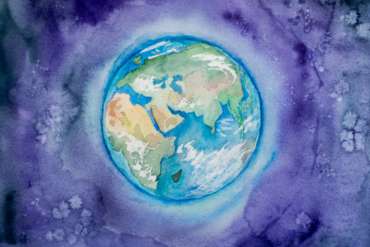Earth Day is an annual event that takes place on April 22nd, where people from all around the world come together to celebrate the planet we live on and raise awareness about the environmental issues that threaten it. The first Earth Day took place on April 22, 1970, and was organized by Senator Gaylord Nelson in the United States. It was a response to the growing concern about pollution, deforestation, and other environmental issues that were becoming more apparent. Today, Earth Day is celebrated in over 190 countries around the world, making it the largest environmental event in the world.
The history of Earth Day dates back to the 1960s, a time when environmental issues were starting to become more visible. The publication of Rachel Carson’s book Silent Spring in 1962, which documented the dangers of pesticides on the environment, was a catalyst for the growing concern about the environment. In 1969, a massive oil spill off the coast of Santa Barbara, California, further heightened public awareness of the need to protect the environment. Senator Gaylord Nelson, who was inspired by the anti-war movement, decided to organize a national “teach-in” on the environment, which became the first Earth Day.
Since the first Earth Day, there have been many significant environmental achievements, such as the Clean Air Act and the Clean Water Act in the United States, the Montreal Protocol on Substances that Deplete the Ozone Layer, and the Paris Agreement on climate change. However, there is still much work to be done. Climate change, plastic pollution, deforestation, and biodiversity loss are just some of the environmental issues that threaten the planet.
The future of Earth Day is crucial to the future of our planet. As the world’s population continues to grow, and climate change continues to impact our planet, it is essential to continue raising awareness about environmental issues and taking action to protect the environment. The United Nations has declared 2021-2030 the Decade on Ecosystem Restoration, which aims to prevent, halt and reverse the degradation of ecosystems worldwide. Earth Day can play a significant role in this effort by promoting individual and collective action to restore ecosystems and combat climate change.
The importance of Earth Day goes beyond just one day a year. It is a reminder that we all have a responsibility to protect the planet and take action to address environmental issues. It is essential to make sustainable choices in our daily lives, such as reducing our carbon footprint, using less plastic, and conserving water. By making small changes in our daily lives, we can contribute to a healthier planet for future generations.
Participating in Earth Day is not just about celebrating the planet; it is also about taking action to protect it. There are many ways to participate in Earth Day, such as attending events, participating in community clean-ups, and volunteering for environmental organizations. By participating in Earth Day activities, we can learn more about environmental issues and take action to address them.
In conclusion, Earth Day is a critical event that reminds us of our responsibility to protect the planet and take action to address environmental issues. The history of Earth Day shows that we can make a difference when we come together to raise awareness and take action. The future of Earth Day is essential to the future of our planet, and we should participate in the day year-round by making sustainable choices in our daily lives and taking action to protect the environment.

